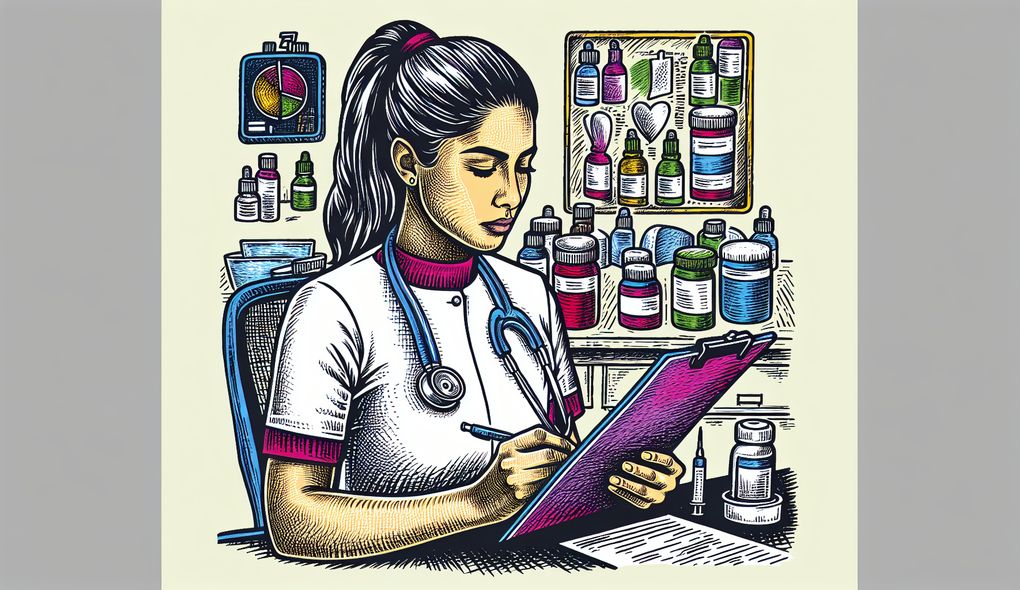Tell me about a time when you had to educate a patient about their diagnosis or treatment plan. How did you ensure they understood the information?
INTERMEDIATE LEVEL

Sample answer to the question:
I once had a patient who was diagnosed with diabetes and needed to understand their treatment plan. To ensure they understood, I first explained the diagnosis in simple terms and used visual aids to demonstrate how the body works in relation to insulin. I also provided written materials for them to take home and review. I encouraged the patient to ask questions and made sure to address any concerns they had. Additionally, I scheduled follow-up appointments to monitor their progress and reinforce the information. Overall, my goal was to empower the patient to take control of their health by providing them with the necessary knowledge and support.
Here is a more solid answer:
In my previous role, I had a patient who was recently diagnosed with type 2 diabetes and needed to understand their treatment plan. I took a comprehensive approach to ensure they fully understood the information. Firstly, I started by explaining the diagnosis in simple terms, avoiding medical jargon. I used visual aids, such as diagrams and models, to illustrate how the body processes glucose and the role of insulin. This helped the patient visualize the impact of diabetes on their body. I also provided written materials, including brochures and pamphlets, that explained the condition and its management in detail. These resources served as a reference for the patient to review at home. Throughout the education process, I encouraged the patient to ask questions and actively participate in their learning. I listened attentively to their concerns and addressed them with empathy and patience. To ensure continuous support, I scheduled follow-up appointments to monitor their progress and reinforce the information discussed during our initial session. By taking this proactive and patient-centered approach, I was able to ensure that the patient had a solid understanding of their diagnosis and treatment plan, empowering them to make informed decisions regarding their healthcare.
Why is this a more solid answer?
The solid answer provides specific details and depth when describing a time the candidate had to educate a patient about their diagnosis or treatment plan. It includes strategies such as using visual aids, providing written materials, encouraging questions, and scheduling follow-up appointments. However, it could further emphasize the candidate's communication and interpersonal skills, as well as their clinical expertise in managing diabetes.
An example of a exceptional answer:
During my time working as an Adult Nurse Practitioner, I encountered a patient who had recently been diagnosed with type 2 diabetes. It was crucial for this patient to understand their diagnosis and treatment plan in order to manage their condition effectively. To ensure their comprehension, I employed various strategies. Initially, I assessed the patient's health literacy level, tailoring my approach accordingly. Using clear and concise language, I explained the diagnosis, incorporating visual aids such as anatomical models and interactive diagrams to enhance understanding. Additionally, I utilized teach-back techniques to confirm comprehension and filled any gaps in knowledge. Recognizing that patient education extends beyond a single encounter, I provided the patient with educational resources, including online articles and reputable websites, to encourage further learning. Moreover, I collaborated with a diabetes educator to develop a personalized self-management plan that incorporated the patient's lifestyle and preferences. By involving the patient in decision-making and setting achievable goals, I empowered them to take ownership of their health. Regular follow-up appointments were scheduled to assess progress, address concerns, and reinforce information. Building a trusting and compassionate relationship with the patient was of utmost importance, as it fostered open communication and encouraged the patient to actively participate in their care. By utilizing my strong clinical skills, exceptional communication abilities, and commitment to patient-centered care, I ensured that the patient understood their diagnosis and treatment plan, enabling them to make informed decisions and embark on a journey towards optimal health.
Why is this an exceptional answer?
The exceptional answer provides a comprehensive account of a time when the candidate educated a patient about their diagnosis or treatment plan. It includes advanced strategies such as assessing health literacy, utilizing teach-back techniques, providing external resources, collaborating with a diabetes educator, and involving the patient in decision-making. The answer also highlights the candidate's strong clinical skills, exceptional communication and interpersonal abilities, and commitment to patient-centered care.
How to prepare for this question:
- Familiarize yourself with various educational strategies and techniques, such as using visual aids, teach-back methods, and online resources.
- Develop a thorough understanding of common diagnoses and treatment plans in your specialization to confidently explain them to patients.
- Enhance your communication and interpersonal skills through role-playing exercises and active listening practice.
- Stay updated with the latest advancements in your field to provide accurate and evidence-based information to patients.
- Consider seeking opportunities to collaborate with other healthcare professionals, such as diabetes educators, to enhance patient education and self-management.
What are interviewers evaluating with this question?
- Communication
- Patient Education
- Clinical Skills

